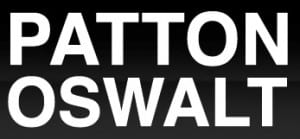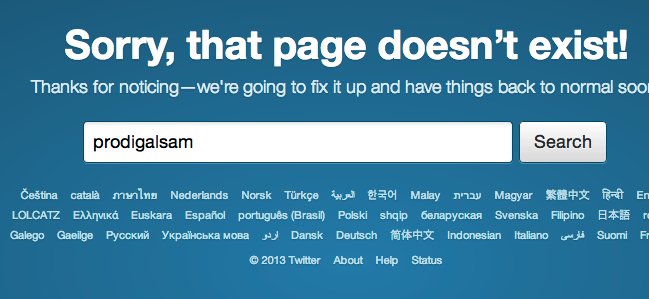Where Patton Oswalt Is Right and Wrong About Plagiarism
 Late last week, comedian Patton Oswalt posted a lengthy manifesto on, among other things, plagiarism in comedy.
Late last week, comedian Patton Oswalt posted a lengthy manifesto on, among other things, plagiarism in comedy.
The letter described the recent “Prodigalism” scandal, in which a University of South Carolina preacher named Sammy Rhodes was found to have been stealing jokes, including Oswalt’s, for his now-defunct Twitter fed.
He also talked about a valedictorian who retold one of his jokes during a graduation speech as if it were a personal story. He also discussed another comic who was lifting material from a friend of his to get ahead (though that plagiarist later flamed out in a very public way according to Oswalt).
Surprisingly, Oswalt even admitted to having lifted a joke himself, albeit by accident. He described how, after being called on it by a friend he looked up to, his ego kicked in and he wanted to succeed or fail with his material.
Through it all, it’s clear that Oswalt has no love for plagiarists. At one point he says:
“If any of these grubworms had temporarily crawled out of the darkness of their own uselessness, even on the backs of other people’s work? They’d have been blinded by the expectations that sustained creation puts on the truly talented. Indifference and failure was �” and still is �” waiting for them.”
He went on to say that, despite that, the plagiarists were never his targets and that “They’re not the problem.”
Instead, Oswalt puts the focus of his anger on society at large, a society that he believes devalues the creativity of comedians and makes it seem acceptable for people to lift from them, often justifying it with tropes such as “Comedians dont’ write their own jokes,” and “Don’t musicians play other musician’s songs?”
After reading his post and thinking about it, I have to agree that Oswalt definitely has a point. However, while I don’t think his anger is misplaced, I think his focus might be too narrow.
While he’s certainly right about how society treats comedians, what he doesn’t realize, or at least doesn’t mention, is that society treats other creative professions similarly.
In short, the problem Oswalt is highlighting isn’t just one faced by comedians, but also by every type of creative and academic profession.
Broadening the Focus
In 1985 the band Dire Straits released the song “Money for Nothing”. The song was a hit on the then budding MTV network and stemmed from a real-life conversation that Mark Knopfler, the band’s lead singer and guitarist, overhead in a hardware store.
In the song, the employee says the following:
“Now look at them yo-yo’s that’s the way you do it
You play the guitar on the MTV
That ain’t workin’ that’s the way you do it
Money for nothin’ and chicks for free”
This is just one of many examples in pop culture of musicians, filmmakers, writers, artists and other creatives not being treated as people who work hard for their craft. This makes it easy, when someone comes along and rips their work, for others to step back and say things like “There’s only so many chords” or “You can only say that so many ways.”
But the problem exists inside academia too. Even though researchers may be more respected by the general public, within academia itself there are sections where a subculture exists that tolerates plagiarism of successful researchers in part because “everyone plagiarizes” or “they obvious cheated to get there.”
But in all of these cases, just as Oswalt points out for comedy, the plagiarism does as much of a disservice to the plagiarist as the community. Inevitably, someone who can’t do the work is found out and, when put to the test, most plagiarists can’t perform.
But while that might work well for dealing with plagiarists, this attitude has other effects as well, a key one being that it plays a role in helping promote and encourage online piracy.
After all, it’s much easier to illegally obtain someone else’s work for free when you don’t believe that they’ve worked hard or earned your money. When a guitarist is just a “yo-yo” playing an instrument and not a person who has put in thousands of hours to hone their craft.
The truth is that, while Oswalt is right that everyone wants to be funny (who wouldn’t?) they also want to be a creative of other types. Everyone wants to be able to play music, write a book, make a painting, etc. but most can’t and it’s often easy to dismiss those who are successful as being “lucky” or “connected” rather than simply more talented or harder working.
That, in turn, makes it much easier to dismiss or even excuse behavior that wouldn’t be tolerated otherwise.
Bottom Line
The main limitation Oswalt has with his closed letter is that he sees the problem solely from the prism of his own career. In truth, it’s a much bigger problem than comedy and a bigger problem than plagiarism.
While that’s understandable, it’s also important to have the larger debate.
In short, even if you are naturally talented, it’s a lot of work to be a creative. Many people, however, won’t see it that way. This impacts how they interact with your work in many different ways, including making it easier to justify infringement, plagiarism and other activities.
To be clear, this isn’t to say that infringement and plagiarism are ethically equal activities. Rather, it’s to say that both are easier to do when you don’t respect the effort and skill that went into the original work.
Unfortunately though, there’s no easy answer to this problem. Since distribution of creative works is much easier, there’s at least an unconscious belief that the creative process itself is too. For proof of that, look no farther than Russia, where upcoming anti-piracy legislation has been proposed to protect movies, but not music because music is, according to the article, “cheaper to create”.
But while Internet distribution and modern equipment may make it easier to record and distribute a song, it does little to help with the countless hours of practice needed to become a professional, much less the constant honing and editing and crafting that goes into making a song. The bulk of the work is still necessary and a professional musician is just as much an artist as a filmmaker (and vice versa).
The Internet may be great, but being a creative is still hard work, even if fewer people seem to realize it.
Want to Reuse or Republish this Content?
If you want to feature this article in your site, classroom or elsewhere, just let us know! We usually grant permission within 24 hours.
